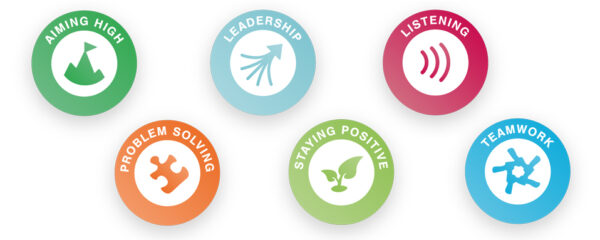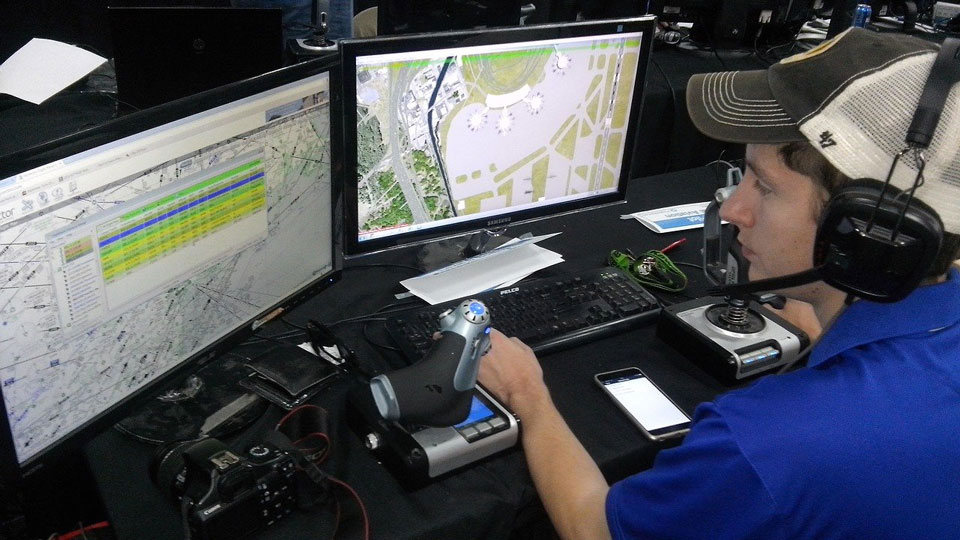Introducing the executive function processes that allow the brain to plan, adapt and multitask ‘like an air traffic controller’.
What Are Executive Function Skills?
Executive function skills refer to the brain-based, cognitive processes that help us to regulate our behaviour, make decisions and set and achieve goals.i
Think of the word ‘executive’ as coming from ‘execute’ and you will see it means to carry out a task or get something done. Similarly, ‘function’ means a role or process. So, our ‘executive function skills’ are the team of mental abilities we draw on to ‘get the job done’.
Executive Function in More Detail
Our brains are responsible for a huge variety of tasks, both conscious and unconscious. Executive function is generally agreed to refer to 11 key skills that include planning, organising, task initiation and keeping focused. These are shored up by the behavioural skills of emotional control, self-monitoring/awareness, response inhibition and flexible thinking. The remaining areas are self-motivation, time management and the ability to use working memory efficiently so that it draws on past experiences to aid current multitasking.
So, we’re talking about things like our children remembering to tell us that they have been invited to a friend’s house. They were actually due there half an hour ago but got distracted cleaning their teeth and then their favourite jeans were dirty because they’d forgotten to put them in the laundry basket. Again…
11 Specific Executive Function Skills
Each of the 11 areas of executive function can be considered as a skill involving either ‘thinking’ (cognition) or ‘doing’ (behaviour)ii.
You might begin to spot them emerging in your young learner in this handy, ‘bite-size’ way:
Thinking (‘cognition’)
- Organisation: Methodical with possessions, plans and thoughts. “A place for everything and everything in its place.”
- Planning and Prioritising: A good goal setter and time planner. “Little Miss/Mister Project Manager!”
- Working Memory: Able to multi-task and multi-step. “Keep all their plates spinning!”
- Time Management: Can estimate time and meet deadlines. “Time is not a piece of elastic.”
- Metacognition / Self-Monitoring: Able to accurately assess their own strengths and needs and see the bigger picture. “They could write their own school report!”
Doing (‘behaviour’)
- Response Inhibition: Seen to take a considered approach. “Look before they leap!”
- Emotional Control: Able to moderate feelings and reactions. “Keep calm and carry on!”
- Sustained Attention: Can apply themselves and concentrate as appropriate. “Focus!” (Or the opposite; ”You can stop now!”)
- Task Initiation: Not just a ‘starter’, but a ‘finisher’. “Happy to roll their sleeves up and get stuck in.”
- Self-Motivation: Also described as ‘goal-directed persistence’. “In it for the long haul.”
- Flexible Thinking: Signs of resilience and adaptability. “Take changes in their stride.”
Weak Executive Skills
Executive function skills that are weak or still in early development can be quite a disadvantage within a peer group or for a particular task in hand.
Expert psychologists, Peggy Dawson and Richard Guareiii give the examples of school performance being affected by forgotten homework, lost papers, last minute work and careless mistakes. They describe young people who do not know how to begin long-term assignments and have “black holes” for desks and backpacks! Home life can be chaotic with regular emotional outbursts; in the mornings, clothing, sports equipment and school materials are regularly misplaced, whereas evening chores only get done with constant nagging and reminders.
It is good to know, then, that our level of competence increases right up until the age of about 25.
When Are Our Brains ‘Fully Grown’?
Our brains mature throughout our young childhood, teen years and into our mid- or even late twenties. This includes the area known as the ‘prefrontal cortex’, which is responsible for the majority of the executive functions that we develop.
One detailed study,iv for example, confirmed “anatomical evidence that the prefrontal cortex develops during preschool years. [… and indications] that gray matter in the prefrontal cortex shows inverted U-shape changes during childhood. The volume in the prefrontal regions increase with age until adolescence [and] additionally that white matter volume in the frontal area increases linearly during the ages of 4–20 years.”
High Learning Potential and Executive Function Skills
Potential Plus UK’s advice sheet on executive function skills states that “no-one is born with executive function skills, nor do they mature automatically or simultaneously as a child grows. They are a set of abilities developed with practice and at different rates. Whilst continuous cognitive training can provide support for weaker areas later in life, it is important to offer young people every opportunity to strengthen these abilities from as early an age as possible.”
Many high potential learners develop their mental and intellectual processes in an ‘out of sync’ timeline.
Such individuals may have had fewer opportunities to boost executive skills during their early years. If, for example, a student finds it easy to understand school work and complete it quickly, they have little need to develop their note-taking, study skills or time management techniques. In such cases, their executive skills evolve at a different rate to their advanced intellect. Ironically, this can result in them demonstrating only moderate or even low academic ability ‘on paper’.
Alongside this, science suggests that changes to the thickness of the brain’s cortex in young people aged 7-19 years mean that gifted and high-intelligence youngsters may not begin significantly building executive function skills until as much as four years later than average intelligence peers.v Significant delays or weaknesses in executive function can impact a child’s ability to demonstrate their potential. This can spark self-doubt and garner a lack of recognition and opportunity from teachers, parents and other authority figures. The Potential Plus UK factsheet PA522 Executive Function Skills suggests techniques such as games for all ages that help grow executive skills in a high potential learner, as well as coping strategies to support any weaker areas.
More In-Depth Information and Related Areas
Blogs (Potential Plus UK)
- How to Kick-start Motivation https://potentialplusuk.org/index.php/2020/06/11/how-to-kick-start-motivation/
- From Disorganised to Organised https://potentialplusuk.org/index.php/2019/01/08/from-disorganised-to-organised/
- Mind Mapping https://potentialplusuk.org/index.php/2018/06/03/mind-mapping/
- Developing Thinking Skills Through Board Games https://potentialplusuk.org/index.php/2020/04/02/developing-thinking-skills-through-board-games/
Advice Sheets (Potential Plus UK)
- PA522 Executive Function Skills https://potentialplusuk.org/index.php/product/pa522-executive-function-skills/
- PA304 Working Memory – Tapping Potential https://potentialplusuk.org/index.php/product/pa304-working-memory-tapping-potential/
Books
The Smart but Scattered series by Drs Dawson and Guare. https://www.smartbutscatteredkids.com/books/
Parents and carers might find particularly helpful from this series:
- Dawson, P., & Guare, R. (2008). Smart but Scattered: The Revolutionary “Executive Skills” Approach to Helping Kids Reach Their Potential. Guilford Press
- Dawson, P., Guare, R., Guare C. (2013). Smart but Scattered Teens: The “Executive Skills” Program for Helping Teens Reach Their Potential. Guilford Press
Teachers and home-educators may benefit most from:
- Dawson, P., & Guare, R. (2018) Executive Skills in Children and Adolescents. Dawson, P., and Guare, R. Guilford Press
- Dawson, P., & Guare, R. (2012). Coaching Students with Executive Skills Deficits. Guilford Press
Website Links
- Executive functioning in gifted students – a description and focused exercises https://mirman.org/application/files/8015/1855/7600/Executive_Functioning_in_the_Gifted.pdf
- Smart but Scattered – Dr Peg Dawson and Dr Richard Guare’s official site; https://www.smartbutscatteredkids.com
- Childhood brain development and detrimental/positive influences https://mentalhealthdaily.com/2015/02/18/at-what-age-is-the-brain-fully-developed/
Skills Builder

References
[i]Dawson, P., & Guare, R. https://www.smartbutscatteredkids.com/about/terms/
[ii] Guare, C., Dawson, P., & Guare, R. (2012) Smart but scattered teens: The “executive skills” program for helping teens reach their potential. Guildford Press
[iii] Dawson, P., & Guare, R. https://www.smartbutscatteredkids.com/about/terms/
[iv] Giedd (1999) and Gogtay (2004) cited in Moriguchi, Y., and Hiraki, K. (2013) Prefrontal cortex and executive function in young children: a review of NIRS studies. Frontiers in Human Neuroscience, 7, 876. https://www.ncbi.nlm.nih.gov/pmc/articles/PMC3865781/
[v]De Bonte, A. What parents & educators need to know about smart kids. NW Gifted Child Association. http://www.nwgca.org/uploads/1/2/0/1/12018395/what_parents_need_to_know_about_smart_kids_2016.pdf
About the author: Gillie Ithell is a writer and editor for Potential Plus UK with a B.A. degree in Modern Languages & Communication. Having worked internationally as content manager of classic board games and ‘edutainment’ software, Gillie now writes to inspire others like herself; on a daily journey with High Learning Potential.






